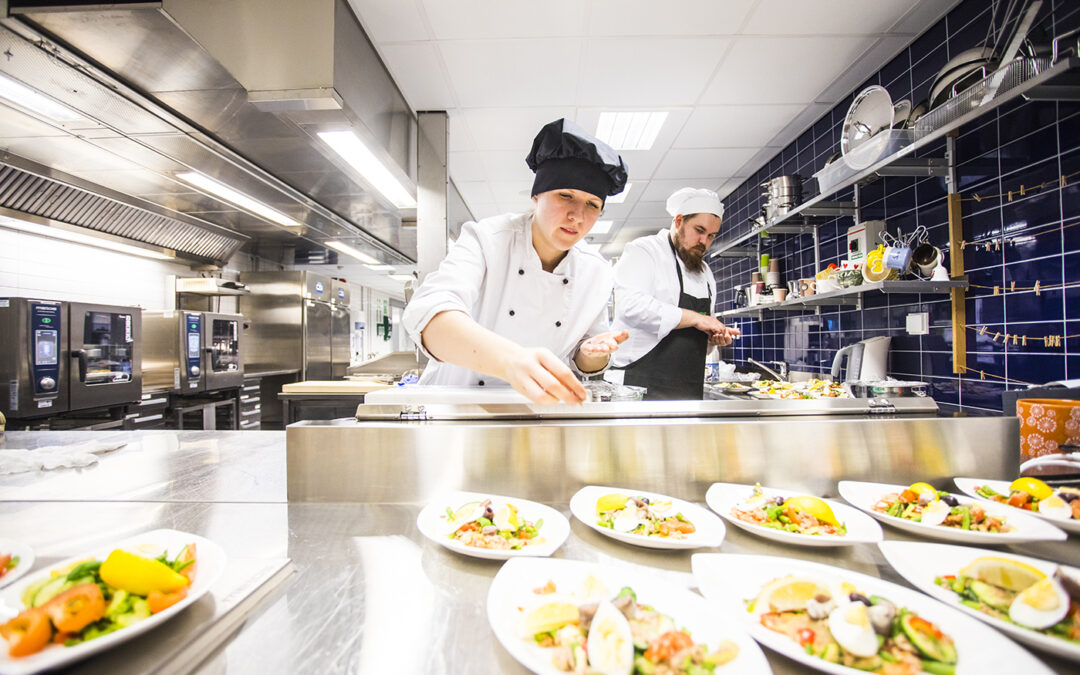The Ministry of Agriculture and Forestry of Finland (MAFF) and two Horizon 2020 projects FUSILLI and Cities2030 organized a workshop in August 2021 in Tampere, Finland. The Ministry is preparing a national Climate-friendly Food Programme which aims to support Finnish society’s move towards a climate-resistant food system. The climate food programme supports the government’s goal of a carbon-neutral Finland by 2035.
Workshop participants discussed on how to implement the measures presented in the Climate-friendly Food Programme and how to promote new innovations. The event was hosted by Karoliina Tuukkanen, Project Manager of the FUSILLI project in the city of Tampere, Finland.
Municipalities play a key role in reforming the food system
Auli Väänänen, Specialist at MAFF, underlined the central role of municipalities in moving forward with the Climate-friendly Food Programme and sustainable food. The participants emphasized that the sustainability aspect should be incorporated into municipal strategies. It should be kept in mind that sustainable food system produces well-being and wealth. The implementation requires a dialogue with municipal policymakers, companies, and other actors.
Practical sustainable food choices can be supported by taking a planetary diet as a starting point for urban and municipal eating.
Sustainability can be increased, among other things, by providing domestic fish and new plant protein processed foods. Higher education institutions support this development by exploring food systems, utilizing learning platforms (e.g., product and recipe development), and organizing training and support for food transformation. Awareness-raising activities, inclusion, and engagement of urban cities’ inhabitants in the development work are seen as particularly important.
Living Labs invite stakeholders to make the change together
Mikael Lindell, Project Manager at FUSILLI project’s Tampere University of Applied Sciences’ team, highlighted TAMK Catering Studio’s Living Lab (LL) development and its connection to the curriculum of Degree Programme in Hospitality Management. Living Labs are open and inclusive innovation environments that engage diverse actors.
Workshop participants identified long-term strategic direction, as well as the importance of proper groundwork. The challenge is to learn away from accustomed behaviour and in-built procedures. The user-oriented Living Lab understands the combination of different interests of stakeholders, motivation factors, expectations, and potential obstacles to participation. Sufficient resources and sharp management practises are necessary for actor engagement in LL activities.
The participants see it very important that all parties and key players affecting the food system are involved in networking and working together. Collaboration, benchmarking, learning from others and open data are at the core of LL activities. The challenge, however, is to measure the results of LLs and making them visible.
Work on sustainable food systems continues
Workshop gave impetus to the beginning of the dialogue between the Ministry and the two Horizon 2020 projects.
“The climate food programme is in the pipeline at the Ministry of Agriculture and Forestry of Finland. The programme sets direction for a sustainable food system for the future. It is great that the food plates of the future are gathered up in the cities of Seinäjoki and Tampere. FUSILLI and Cities2030 are important partners for us to make climate-friendly food reality in our society”,
said Ministerial Adviser Hanna Mattila.
The workshop material and results will be analysed in MAFF. At Horizon 2020 project level we will continue our cooperation. The projects could cooperate in a way that supports the Ministry’s efforts and the implementation of the Climate-friendly Food Programme.
Bottlenecks of the sustainable food system should be resolved at municipal and urban level through cooperation. At the same time, the message is being taken to policymakers to bring sustainable food to the agenda of strategy work in the cities. Together we can make a greater impact!
Writers:
Mikael Lindell, Senior Lecturer, Coach, Proakatemia, Tampere University of Applied Sciences
Sanna Luoto, Senior Lecturer, Business and Media, Tampere University of Applied Sciences
Sources: Ministry of Forestry and Agriculture in Finland, Climate-friendly Food Programme 2021, (read 3 September 2021): https://mmm.fi/en/climatefriendlyfoodprogramme
Cities2030 project addresses urban food systems to generate and deploy an actionable roadmap to structure, accelerate and sustain transforming Urban food systems and ecosystems (CRFS), and to deliver frameworks to produce policies and innovations towards the democratization and implementation of sustainable CRFS. Information on Cities2030 project at https://cities2030.eu/
The original Finnish blog text ”Ideatalkoissa tavoitteena kestävä ruokajärjestelmä” was published at TAMK Blog on 13 October 2021. Kindly visit our local Finnish FUSILLI website: https://www.fusilli.fi/
